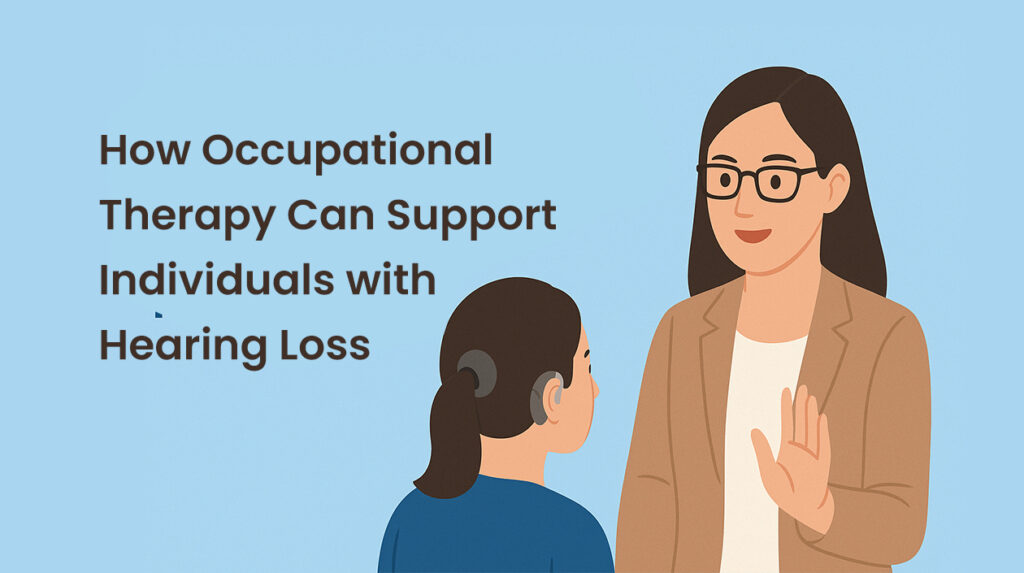Hearing loss doesn’t just affect how a person hears — it influences how they live, communicate, socialize, and function daily. While hearing aids and cochlear implants play a major role in restoring hearing, occupational therapy offers a broader approach to improving a person’s ability to participate in meaningful activities.
At Hearing Point Noida, we recognize the importance of integrating occupational therapy with hearing care services to support holistic recovery and lifelong independence.

Understanding the Role of Occupational Therapy in Hearing Loss
Occupational therapy (OT) focuses on helping individuals regain or improve skills necessary for daily life. For those with hearing loss, OT doesn’t treat the hearing condition directly. Instead, it enhances a person’s ability to adapt to challenges by building communication strategies, confidence, independence in daily living activities and self-sufficiency.
OT is particularly valuable for:
- Children with speech delays due to hearing loss
- Adults adjusting to hearing devices
- Seniors dealing with cognitive and physical impacts of hearing loss
- Individuals coping with both sensory processing and communication issues
How Occupational Therapy Helps Individuals with Hearing Loss
1. Enhancing Communication Strategies
OTs teach patients how to use gestures, facial expressions, written cues, and assistive technology to communicate more effectively in different environments.
2. Supporting Social Participation
Occupational therapists guide individuals with hearing loss in engaging with others at work, school, and in the community. This boosts self-esteem and helps reduce feelings of isolation.
3. Improving Daily Functional Skills
For individuals with both hearing and motor challenges, OTs work on improving independence in tasks like:
- Managing hearing devices
- Following visual schedules
- Using alert systems for doorbells, alarms, or timers
4. Helping Children With Early Intervention
OTs play a critical role in early intervention for speech delay in children caused by hearing issues. Therapy sessions often combine sensory integration and play-based learning to support language development, behavior, and social interaction.
5. Addressing Sensory Processing Disorders
Some individuals with hearing loss, especially children, may also experience difficulty processing other sensory inputs. OT helps regulate these responses to improve pre-linguistics, attention, learning, and emotional balance.
Benefits of Combining Occupational Therapy with Hearing Care
At Hearing Point Noida, we strongly advocate for a multidisciplinary approach where occupational therapy complements audiology, speech therapy, and hearing aid rehabilitation.
Key benefits include:
- Improved confidence and emotional well-being
- Greater independence in managing hearing devices
- Better adaptability at school or workplace
- Enhanced speech and communication outcomes
- Stronger family and peer relationships
Why Choose Hearing Point Noida for Integrated Hearing Care
We go beyond basic hearing solutions. At our hearing care center in Noida, we provide:
- Occupational therapy for hearing-impaired individuals
- Speech therapy services in Noida
- Hearing aid consultations and fittings
- Cochlear implant support and rehabilitation
- Early intervention programs for children
Whether you or your child needs help adjusting to hearing loss, our dedicated therapists provide personalized strategies that promote long-term success.
Take the Next Step Toward Better Living
If you or a loved one is facing the challenges of hearing loss, don’t wait. Occupational therapy, combined with expert hearing care, can significantly enhance quality of life. Book a consultation at Hearing Point Noida today and explore how our team can support your journey toward improved communication, independence, and confidence.
